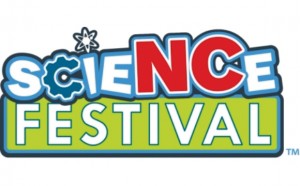 Experiments with Coastal Waters, History, Germs, Alchemy and More – April 13
Experiments with Coastal Waters, History, Germs, Alchemy and More – April 13
“Scientific Passport Through Time” brings a fun-filled day of experiments and activities to Tryon Palace on Saturday, April 13. Held in conjunction with the North Carolina Science Festival’s multi-day, statewide celebration, Tryon Palace and Craven Community College will provide children of all ages with an opportunity to conduct hands-on experiments that bring together science, history and fun.
“Scientific Passport Through Time” invites participants to pick up a passport from the North Carolina History Center ticket desk and then travel from station to station, picking up stamps and conducting hands-on experiments along the way. Most of the activities are offered at no cost, however, a One Day Pass is required to participate in all activities and pick up all the stamps.
“We are really excited about ‘Passport Through Time’ because it gives us a chance to focus on science—a subject area we do not usually get to talk about on a regular basis,” said Karen Ipock, Tryon Palace Education Programs Manager. “Science and history are typically taught separately but of course they are linked. This event allows us to work with Craven Community College to explore this link in a fun and interactive way that’s open to all ages.”
Experiments will be rooted in coastal and historical themes, spanning from river basins and groundwater to the discovery of germs and a little fun with alchemy. Activities for “Scientific Passport Through Time” will be spread across Tryon Palace on both the historic sites and the North Carolina History Center.
Held from 10 a.m. until 2 p.m., detailed descriptions about each activity are as follows:
River basins
Participants will investigate how river basins function and relate that information to our position within the Neuse River Basin. The Neuse River is the longest river in North Carolina and at its mouth the widest river in the United States. The Neuse River Basin is over 6,000 sq. miles and home to over 1.6 million people. Participants will investigate the impact the population has on the quality of the Neuse River.
Groundwater
Fifty percent of North Carolina’s population relies on groundwater for their freshwater source (increases to 90% when looking only at the coastal plain region). Groundwater takes the form of underground rivers, as water moves through the pore spaces between sediment (sand, gravel, or fissures in rock). On average, Eastern North Carolina receives about 50 inches of rain each year. Of that, only about 1 inch makes its way back into the groundwater system.
Start Spreading the … Germs?
In the 1700s and 1800s germs were a big problem … but thankfully things have gotten much better here in the 21st century. Come find out how easily germs are spread and what you can do to prevent it.
Hay House Experiment – Comparing 19th and 21st Century Experimental Techniques
Why does red cabbage juice change color? What did people use it for when America was young? Scientists still use the same principle to run similar tests today. Come find out how.
Chromatography
How does the kind of ink used in the colonial period compare to ink used today? Come find out using a technique called chromatography as we compare these inks side by side.
Alchemy
Using the alchemical arts, we will transform the base metal copper to a higher aspect of silver by increasing the concentration of earth energies in a common penny. The final ascending transformation will be accomplished through an influx of fire and spirit that results in the formation of the most perfect of metals: gold. Visitors will also learn how the philosophical traditions of alchemy transformed into the modern science of chemistry.
Kitchen Gadgets
Come see a variety of gadgets that were used in 18th century kitchens. At this hands-on table participants will explore early kitchen gadgets from the 18th century and see how they apply to 21st century appliances and kitchen technology.
Planting Activity
Come plant a marigold seed and learn about how this flower would have been used in the garden, in the kitchen, for cloth and as a medicine. Not only does this experiment offer a take-home activity, it’s a perfect complement for Garden Lover’s Weekend, which will also take place at Tryon Palace during the Science Festival. In addition to the Palace gardens being open at no cost for the entire a day, a free lecture will be held at 10 a.m. in Cullman Performance Hall that’s entitled, “Eat Your Own Yard!”
For more information about “Scientific Passport Through Time,” call 252-639-3500 or visit www.tryonpalace.org. Additional information about the North Carolina Science Festival is available at http://www.ncsciencefestival.org.
Submitted by: Craig Ramey, Marketing and Communications, Manager, Tryon Palace and the North Carolina History Center

